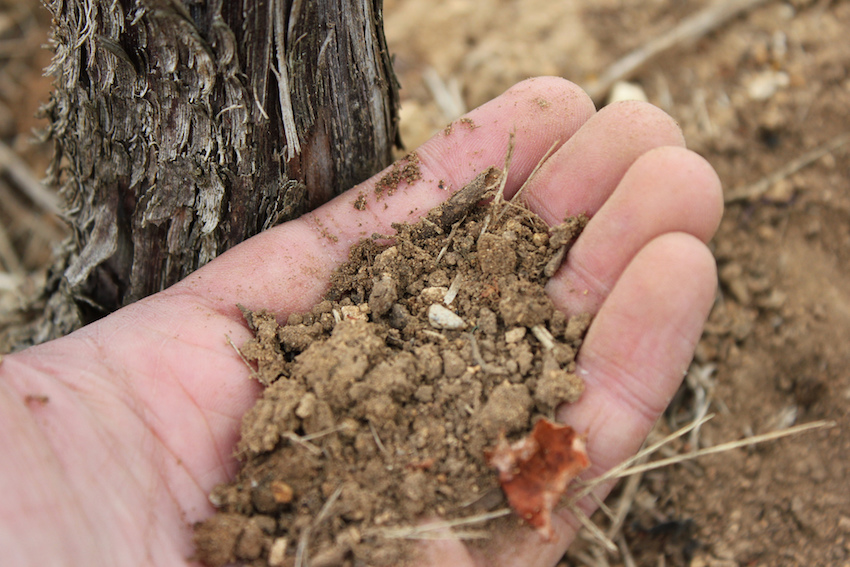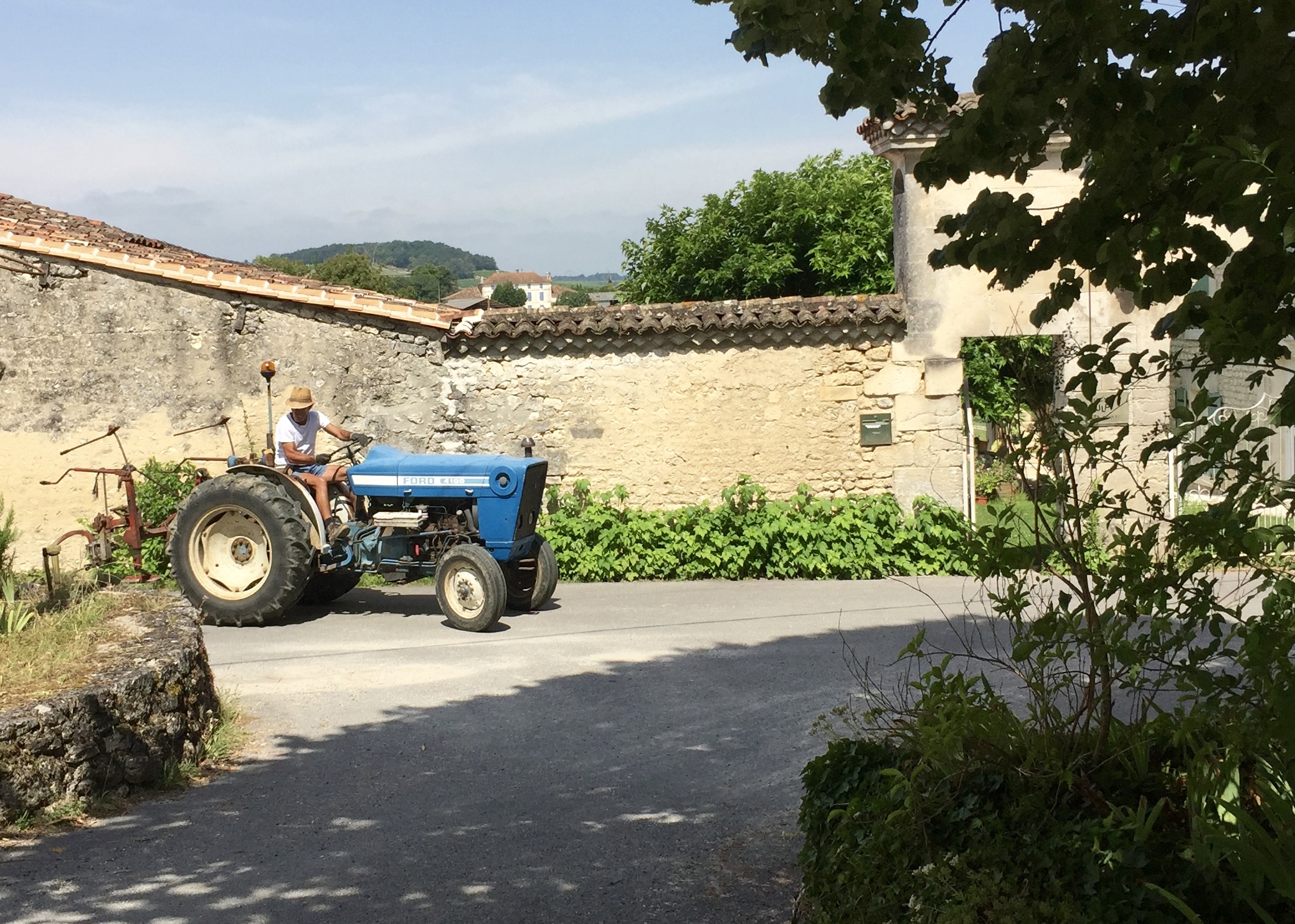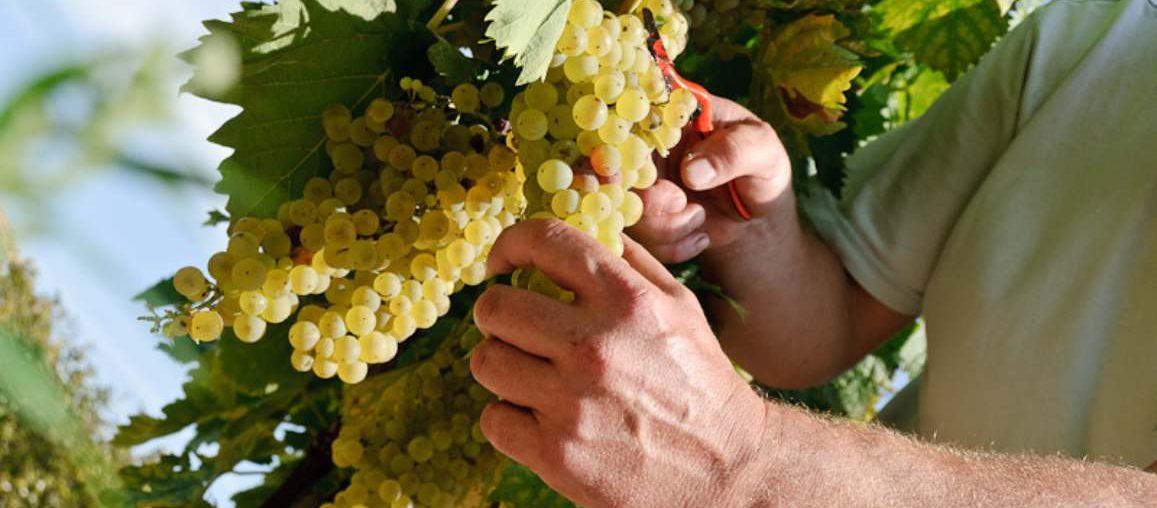Let’s start out with the basics: to make organic Cognac, a vintner must begin by growing organic grapes. Since grapes are a perennial crop, a farmer must cultivate them organically (with no chemical pesticides, herbicides, or fertilizers) for at least three sequential years to be able to label the Cognac produced as organic.

Some Background
Grapevines, when planted in monoculture and farmed intensively, like all other species are more prone to illness, so vintners must treat the vines in order to keep them healthy. Organic Agriculture is a label with strict guidelines barring the use of synthetic products in the production process.

So to prevent illness the organic label assures the final customer that only natural, topical “preventative medicine”, have been used to grow the grapes. Since the end of the Second World War, winegrowers have been using systemic chemical treatments against mildew and disease, weed killers to prevent competition for water and minerals, and chemical fertilizers to augment yields. None of these measures is possible for a farmer of organic Cognac.

Organic Cognac-makers must find different solutions, often going back to the ones their grandfathers and great-grandfathers used, in a time when pesticides had not yet been invented. They use copper and sulfur, nettle and horsetail infusions, mechanical weed removal, and manure and compost fertilizers. Why return to old-fashioned ways? Jean Pasquet, head of Domaine Pasquet, labeled organic since 1998, says that his father, Jean-Luc, was originally looking for a way to heal a plot of vines which was not in good health back in the early 1990s. He tried organic and even biodynamic agriculture and saw results the very first year, choosing to reconvert the entire vineyard and ask for the label after that.

Before, he had to treat for aphids, but, with organic farming, the aphid problem was fixed naturally by another species, which had returned to the vines. The eco-system began to come back to life little by little and Jean-Luc started to find balance. For Jean and Jean-Luc before him, organic agriculture is a not silver bullet, but they believe it makes sense in their research for the best their “terroir” can offer. Jean no longer purchases fertilizers but composts manure from the neighboring bovine farm along with the left-over grape stems and skins from the harvest, and he plants barley and faba beans between the rows of vines during the winter to chop them down at the right moment, giving the soil the minerals, that have been taken from it, which the vines will later use. Soil analyses are important, he says, because the earth is far more than just a substrate upon which the plants grow, but, it must provide all the nutrients for the vines to thrive.

He says that the most difficult part of being an organic vine-grower though is the weeds. As long as there is no organic weed-killer, he has to be in the vines plowing and cutting the grass often during the spring and summer. With organic wine, a wine-maker must use lower doses of sulfites than someone without the label. In Cognac, there are already no sulfites added to the white wines, so neither the vinification nor the distillation process is different from that used in conventional agriculture.

After about 5 years of using organic methods, Jean-Luc began to smell different aromas, ones he had not tasted in a long while, coming from his distillate. Today, Jean continues to work his vines organically and has doubled the size of his vineyards. He hopes to find the same changes in the eaux-de-vie from the new vineyards acquired in 2016, which he began converting to “Agriculture Biologique” that same year.
Organic Cognac Today
Five years ago, we published an article called Organic Cognac Growers still a Minority in the Region. Since then, despite more ecological practices in the Charente vineyards, the explosion of “Agriculture Biologique” will have come from customer demand. Today, even the big players are following the trend: This coming year, Martell will not use any weed killer on their nearly 300 hectare vineyards. Rémy Martin has already been asking its vintners to convert to more sustainable farming methods. Although the big houses are not requiring their contract farmers to convert to organics, there is a push to use fewer chemicals in the vines from all parties. Today, many farmers use some organic methods but choose not to convert their entire vineyard or keep the option of adding chemical products if necessary.
If you want to make sure that only natural products have gone into making the cognac that is in your bottle, the only guarantee is the green organic label stamped on it.

Once, there were only two organic Cognac producers from which to choose: Cognac Guy Pinard & Fils and Cognac Brard Blanchard. Today, there are many options! Still, less than one percent of the entire Cognac appellation is farmed organically. Cognacs from the two pioneers are still available for purchase as well as producers like Jean-Luc Pasquet, Cognac Decroix…and still others who do not have vines but who believe in organic farming and who buy organic eaux-de-vie to sell and blend under their brand name. Here are some options from different crus (which should express their terroir exceptionally well, being organic).
Organic wine-growers
1. Jean-Luc Pasquet
The range L’Organic 04, L’Organic 07, and L’Organic 10 by Cognac Pasquet refer to the numbers (comte d’âge) from the BNIC, meaning that they are aged at least 4 1/2 years, 7 1/2 years and over 10 1/2 years in lightly-toasted French oak barrels. These are exceptional Premier Cru Grande Champagne Cognacs. Fresh, fruity notes are present in all three, with the older two developing spicy notes. L’Organic 04 is a fantastic cocktail cognac, but we highly recommend the L’Organic 10 for its smooth complexity.
2. Guy Pinard & Fils
One of the first organic produces in Charente with over 40 years experience, Guy Pinard is still going strong with his 3 year VS, 6 year VSOP, and Guy Pinard 10 year Napoleon. Pinard also produces vintages: we recommend connoisseurs taste the 1979, a bold, beautiful Fins Bois Cognac.
3. Brard Blanchard
Another founding father of organic Cognac, Brard Blanchard has passed his domain down to his daughter. She continues to produce Fins Bois Cognac, Pineaux, and other drinks. To try something new which can give you a new perspective on Cognac, we can recommend the Folle Blanche, the pre-phylloxera grape, in Eau-de-Vie, something common in Armagnac remains rare in our region. Brard Blanchard pulls it off with aplomb.
4. G&A Gabriel Domaine De Marais
Alexandre Gabriel, a man with a prolific amount of innovative ideas, produces the eight year old, single estate G&A Gabriel Organic Fins Bois Cognac at the Domaine De Marais. The house of Pierre Ferrand is helping smaller producers, who may not have the financial capacity to do so, to bottle their Cognacs. This is the fresh, smooth, and fruity result directly from the producer to the bottle.
5. Decroix Cognac Vivant
Another long-time organic producer in the Bons Bois Cru, Decroix has been bottling his Cognac for fewer years than his colleagues but has come out with a pure, clean XO cognac in a bottle that reflects its contents. For many years, Decroix cognacs filled the bottles of blenders, but today he has his own brand and the result is quite pleasant.
Negotiants (Brands that source eaux-de-vie from organic wine growers)
6. Cognac Park
The Park Bio Fins Bois is a wonderful example of a cognac produced by a house that is committed to responsible farming in the Fins Bois terroir. This VSOP is fruity and floral and can be served on ice as an aperitif or neat as a digestive. It is a truly versatile Cognac.
7. Cognac Prunier
Cognac Prunier has chosen to blend Fins Bois Cognacs to craft its own Prunier Organic VSOP, aged at least 5 years. The family of master blenders recommends this special VSOP either neat, on ice or with your favorite mixer in a cocktail.
8. Léopold Gourmel Bio Attitude
A surprisingly delicate young Fins Bois VSOP, Léopold Gourmel Bio Attitude has a lot of finesse. Another very fresh Cognac with fruity (grape, watermelon, grapefruit) notes, blended with those of vanilla and hibiscus flowers. Like other Gourmel Cognacs, this one is very balanced.
9. Grosperrin
Organic Cognacs are rare, as are vintage Cognacs. Grosperrin 2001 Fins Bois from the house of Grosperrin, masters at bottling at just the right moment, is quite a find. Powerful and balanced at the same time, this 47% alcohol Cognac conserves the best the Fins Bois terroir has to offer.
10. Distillerie du Peyrat
Distillerie du Peyrat offers single-distillery organic Cognac. Jean-Francois Rault is also a vintner in his own right. He choses to purchase from several organic farmers to blend his Cognacs into complex masterpieces. We recommend the Distillerie du Peyrat Organic Selection XO, named as one of the 50 best spirits in the world by Wine Enthusiast Magazine.
These Cognacs are all organic. They contain no chemicals but they do contain the essence of their different terroirs. Enjoy the unadulterated taste of the Charentes!








1 Comment
Mery Melrose Organic VS & VSOP Cognacs of Grande Fine Champagne, France were recently named among the Top Five Cognacs to Try by the Huffington Post. Do you carry them?